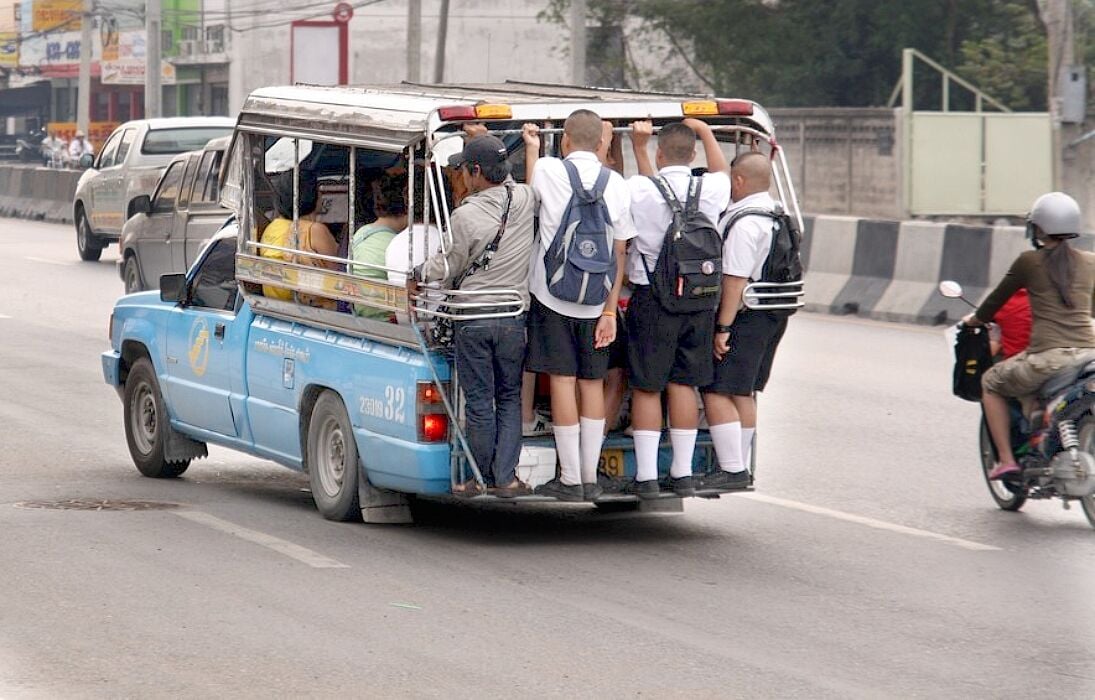Federal baht bus standing ban puts drivers in a pickle

A new law has been published in the Royal Gazette, stating that passengers are no longer allowed to stand on the back of baht buses, also known as songtaews. But drivers are also obligated to pick up all passengers, leaving drivers with the dilemma of either illegally not picking up passengers when full or illegally overcrowding and allowing passengers to stand on the back of the bus.
Similar laws have long existed – and often been ignored – on a local level throughout Thailand. But last Friday the ban on standing on the back of baht buses was enacted as a federal law. Some believe the national law will be more strictly enforced than local laws.
Baht buses are a common form of public transportation in Thailand, especially in urban areas. They are typically pickup trucks or vans with covered seating areas in the back, and they follow fixed routes around the city, picking up and dropping off passengers along the way. Baht buses are known for their low fares, and passengers can flag them down from the roadside or hail them from a designated stop.
The law prohibiting standing on the back of baht buses is intended to improve safety for passengers. While they have seats inside the covered area, many passengers prefer to stand on the back for a faster and more convenient ride, particularly during rush hour. However, authorities fear for safety with riders dangling of the tail end of the bus, especially when the vehicle is moving at high speeds or making sudden turns.
The law also mandates that the speed limit for baht buses must not exceed 60 kilometres per hour, and drivers who break this law will face legal action.
Despite the safety concerns, some baht bus operators are not happy with the new law. They argue that they cannot always stop passengers from standing on the back, especially during rush hour when passengers are in a hurry and willing to take the risk.
Also, baht bus drivers cannot legally refuse to pick up more passengers. So if people cannot stand on the back of the bus, and they are legally obligated to pick up more and more passengers, overcrowding inside the covered area of the baht bus is inevitable.
The 60 kilometres per hour speed limit is also a cause for concern among baht bus operators. While it may not be a problem for baht buses operating within city limits, it could affect those that run outside of town. However, the new law is expected to improve overall safety for both passengers and drivers, as well as reduce the risk of accidents and legal liability for operators.
Latest Thailand News
Follow The Thaiger on Google News:



























